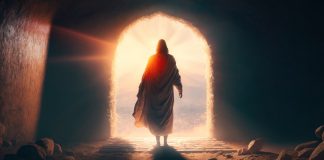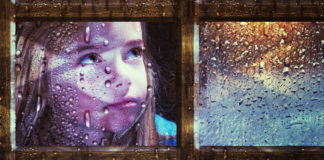The lamb that was slain for me
"The fire and wood are here, but where is the lamb for the burnt offering?" (Genesis 22:7).
Old Testament and New Testament | The unity of Scripture
The Bible has 66 books written by different authors over about 1,500 years. Is there a common theme, a leitmotif? If so, which is it? Is there an Old Testament God and a New Testament God?
When sounds proclaim the glory of God
The year 1685 gave the world two of its greatest composers: Johann Sebastian Bach and George Friedrich Handel. The presence of the great biblical subjects in their masterpieces not only filled the hearts of believers with joy, but determined a new direction in the evolution of the musical language, which continues to have an impact to this day.
John Calvin
In The Legacy of John Calvin, David W. Hall divides leaders into two categories. Some predict the future, and others change it. Calvin, Hall said, is in the second category.
Not by sight
Born into a family of surfers, one could say the love of the salty ocean air courses through the veins of his body. Named after legendary surfer Derek Ho, even his name embodies the hopes and expectations of what he was to become.
What did Jesus think about Himself?
Jesus Christ is certainly the most fascinating and controversial person in human history, if we look at how He has been understood throughout the history of Christian thought. But how did Jesus understand Himself?
How do I know God exists?
You must picture me alone in that room in Magdalen night after night, feeling, whenever my mind lifted even for a second from my work, the steady, unrelenting approach of Him whom I so earnestly desired not to meet. That which I greatly feared had at last come upon me. In the Trinity Term of 1929 I gave in, and admitted that God...
Love in the Time of COVID-19
As we know all too well, life can be hard. Even in the best of times, life can be hard. But now this, a pandemic? How are we to cope?
The exclusive prayer: Who should we address when we pray?
The stakes are high when it comes to identifying the one to whom we should pray, and we can discover who by answering an apparently simple question: Can we expect prayers to be heard no matter who we address them to?
The Second Coming Files: a 2000-Year Inquiry | Part II: Millenarianism as a forgotten orthodoxy
Right from the first centuries, the scenario of the second coming of Jesus was interpreted spiritually-allegorically by some, and politically-ecclesiastically by others. As we have learned from the previous article of this series, even the main millenarian movement in antiquity (Montanism) led to an anti-apocalyptic reaction on the part of moderate Christianity. Is this rejection of apocalyptic millenarianism justified? What does Revelation actually...
Christ has ascended!
On the evening of His passion, Jesus promised His disciples, ""Do not let your hearts be troubled. You believe in God; believe also in me. My Father’s house has many rooms; if that were not so, would I have told you that I am going there to prepare a place for you? And if I go and prepare a place for you, I...
COVID-19: What have we learned about ourselves?
Courage is not the opposite of fear, nor of caution. True courage is what you do right in the midst of fear.
Reacting to the worst news
In a conversation with Dr. Shelly-Ann Bowen, we discussed her research on what determines whether someone will be active or passive in the face of catastrophic events—fires, floods, or a cancer diagnosis. Social injustice, a lack of self-awareness, and even an immature understanding of faith paralyse action. But there are ways to make positive changes.
Before drawing a conclusion
From my experience and the conversations I have had so far, I have found that there are two major categories of people who come to doubt the existence of God.
Paradise seen from the outside
In wisdom you made them all; the earth is full of your creatures – Psalm 104:24


























